Oregon set to decriminalise heroin and LSD as Joe Biden eyes opportunity of federal cannabis legislation
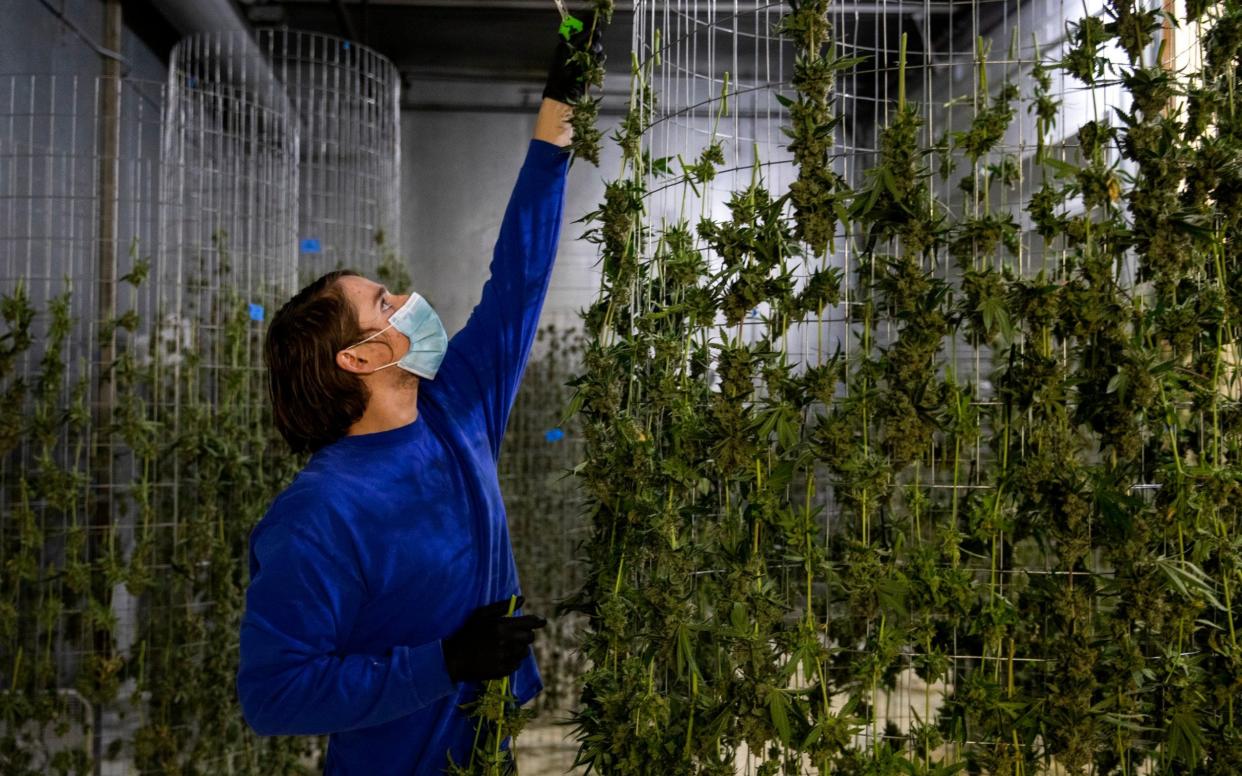
Jesce Horton was 18 years old when he was first arrested for carrying two grams of cannabis. A star engineering student who had grown up in the shadow of his father's own weed conviction, he had found that the drug unlocked his talent for maths.
That arrest was the of three that would eventually cost him his scholarship, force him to drop out for a time and block a promotion at his dream job.
"It had a great effect on my future and my self-esteem," he says. "When you're arrested, you see a lot of your doors close immediately."
But Mr Horton persevered, and today he runs a legal cannabis business called LOWD in Portland, Oregon, which had been the first of the United States to end criminal penalties for possession of the drug in 1973.
His course exemplifies how cannabis has left the shadows of America's drug war to become a legitimate business. Now Oregon is going one step further, aiming to give people caught with harder drugs a second chance.
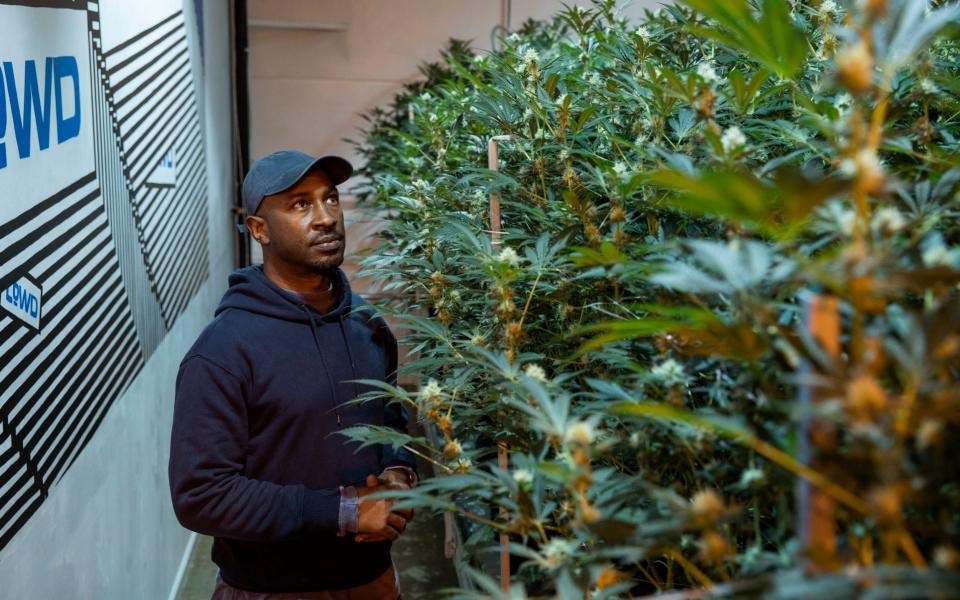
As of Monday, the possession of small amounts of heroin, cocaine, meth and other controlled drugs for personal use will cease to be a crime in Oregon. Instead it will be a civil offence, punishable by a $100 (£73) fine that can be waived by taking a health assessment.
Those cited will be referred to "addiction recovery centres", funded from the new tax revenue that is generated by legal weed businesses such as Mr Horton's. The system is loosely based on Portugal's decriminalisation in 2001, which has been praised by many abroad.
Separately, 'magic mushrooms', whose psychedelic effects have been used for centuries by native Americans, are set to be legalised for medicine and therapy in two years' time.
These measures, backed by 58pc and 56pc of Oregon voters in referendums last November, make Oregon's drug laws the most radical in the USA, and could augur yet more change for an America already softening marijuana prohibitions at rapid pace.
With the Democratic Party in control of both houses of Congress as well as the presidency, advocates hope for an end to the "war on drugs" first declared by President Richard Nixon in 1971, which they believe has become an Iraq-style quagmire.
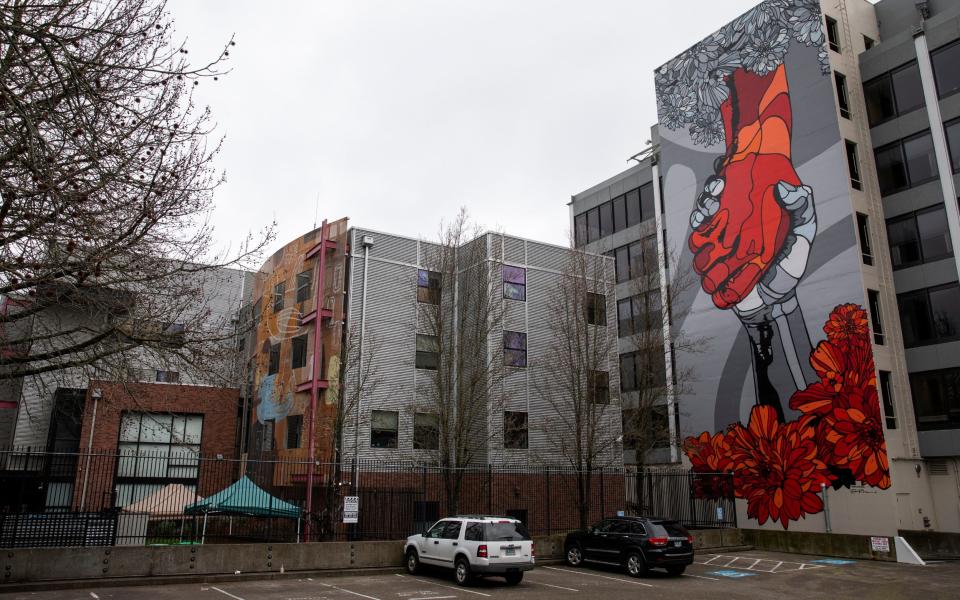
"The whole country is going to be watching us right now, and there's folks that want us to fail and folks that want us to succeed," says Monta Knudson, executive director of Bridges to Change, an addiction and mental health service has been preparing for the changes. His life too was scarred by addiction and years in jail: in 2017, he had to fight to be a guarantor on one of his children's tenancy agreements.
The new law's biggest effect will be to spare thousands of people such punishments. According to Anthony Johnson, a policy analyst at the Oregon Retailers of Cannabis Association and one of the three official "petitioners" who put decriminalisation on the ballot, drug possession arrests will drop by about 1,000 per year, versus a maximum of 30,000 ten years ago.
Black and native Americans are likely to benefit most, with a report by the Oregon Criminal Justice Commission estimating that racial disparities in drug arrests will drop by 95 per cent.
The change is a double-edged sword to Roy Moore, a gang outreach supervisor with Portland's violence prevention office who regularly attends vigils, concerts and other events where local gangs gather.
"On social media, in the schools and in the memes, the joke is 'oh yeah, I can walk around with this [drug] now, homie, and I won't go to jail," he says. In other ways, his job will be easier, letting him offer help more openly without the threat of incarceration looming in every conversation.
The roll-out so far has been chaotic, with battles over funding and organising the new treatment services looming in Oregon's state capitol, Salem.
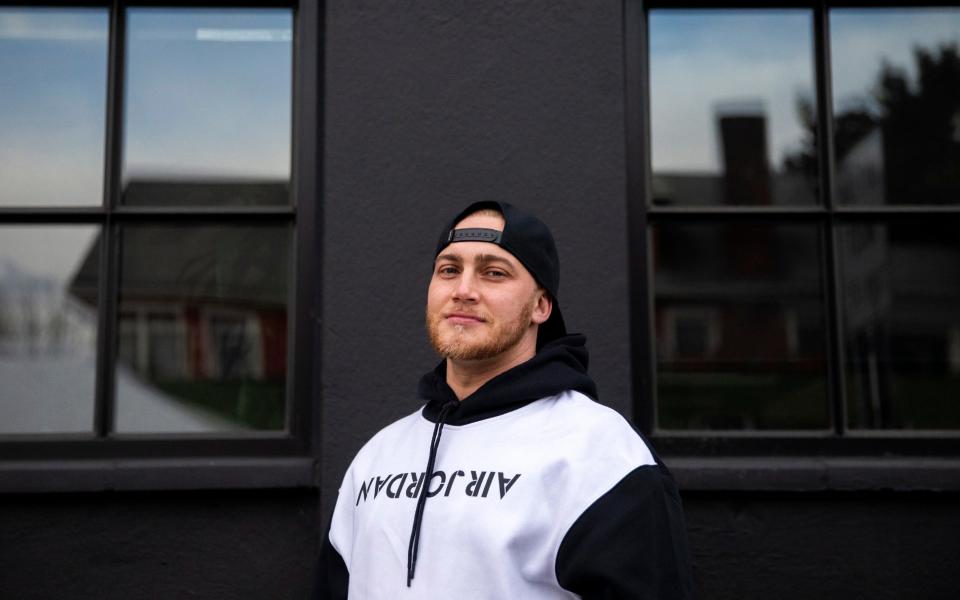
Some prosecutors stopped issuing possession charges as soon as the vote was passed but before the new referral system was in place, leaving Mr Knudson's group scrambling to set up its own interim version (he suspects some prosecutors may be trying to make a point).
Mike Marshall, head of the recovery groups' coalition Oregon Recovers, fears the lack of comprehensive addiction services reform could cost lives, and says he will push for new taxes on alcohol to fund a holistic public health plan.
Meanwhile, therapists, scientists and "psychonauts" are excited about the availability of medical psilocybin, the active ingredient in hallucinogens like magic mushrooms.
"This will absolutely provide opportunities to conduct research that was not possible before," says Aaron Eisen, education and research chairman at the Portland Psychedelic Society, which has been organising workshops about the new law.
While cautioning that more evidence is needed and that psychedelics do carry risks, he cites studies suggesting that they could help with conditions ranging from anxiety and depression through chronic pain to addictions to other substances.
"One day soon, we may see therapy centers across the country offering MDMA and psilocybin therapy for an array of mental disorders," he says.
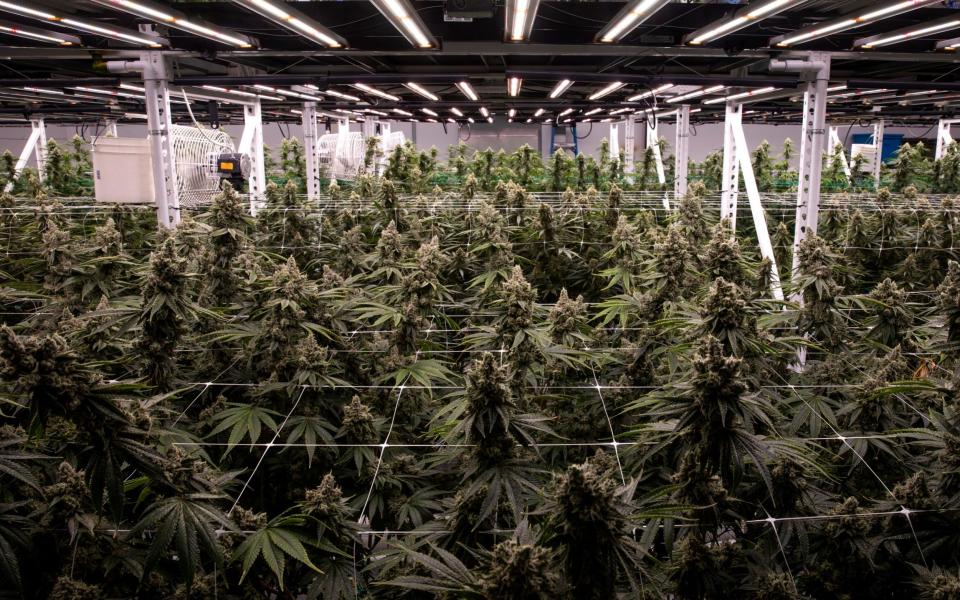
The question now is whether other states will follow. November saw votes to legalise cannabis not only in liberal New Jersey but traditionally red Arizona, Montana and South Dakota, plus medical use in Mississippi.
Five states have now legalised marijuana, with 36 others approving medical use. Shane Schmitt, general manager at the cannabis growing firm Wy'East Oregon Gardens, sees change from an unexpected source: baby boomers are a growing pot-buying demographic, and prefer trustworthy, mellow highs with labelled ingredients.
Mr Johnson believes further decriminalisation will be the next step.
"These are our first big sledgehammer hits against the overall drug war in the United States," he says. "Oregon was the first state to decriminalise cannabis, the first to pass a vote by mail measure, the first to pass a death in dignity act. Each time we've seen other states follow suit because they see success on the ground."
He predicts blue states such as Colorado and California will follow in the next four years, with federal decriminalisation of all drugs within ten or twenty.
Pushback has already begun. In Idaho, a red state surrounded by legal weed, Republican legislators are touting a constitutional amendment to ban future drug referendums, reportedly fearing big-money campaigns funded by out of state interests.
Changing the state constitution would be a high bar, but the worry is not unfounded: Oregon's "yes" campaign outspent "no" by 33 to one, with the biggest wads coming from Mark Zuckerberg and his wife Priscilla Chan, the American Civil Liberties Union, and Drug Policy Action (DPA), a New-York-Based pressure group.
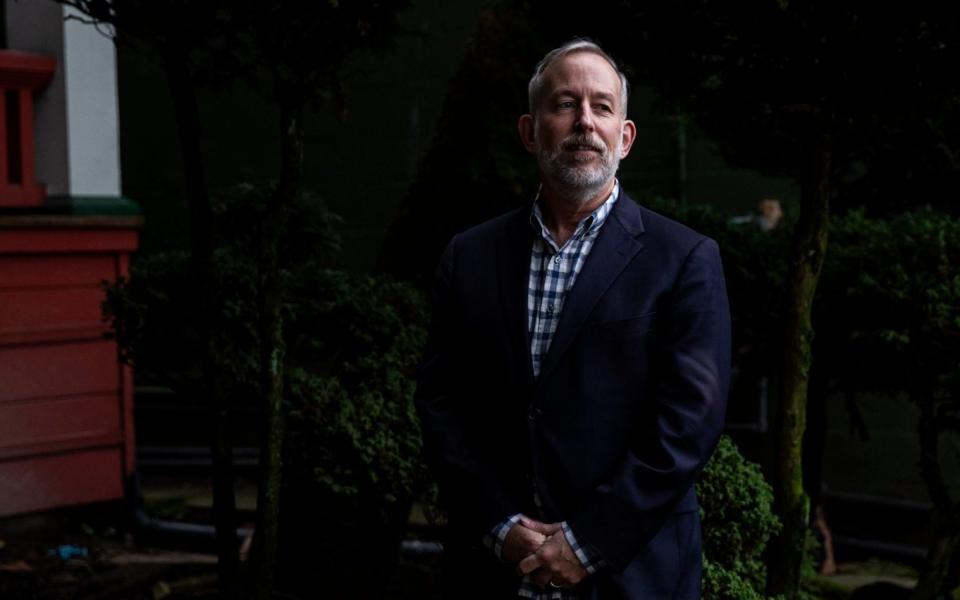
Locals say DPA chose Oregon as a test case for similar laws elsewhere (Mr Marshall derides it as a "New York solution to an Oregon problem").
In the long run, liberal drug laws could also help reverse the mass incarceration and military-style policing that exploded last summer in the George Floyd protests.
The threat of tooled-up drug gangs justified the mushrooming of warlike SWAT teams and mass transfers of equipment from the armed forces. Back then, one of the drug war's biggest allies in Congress was one Joe Biden, and Vice President Kamala Harris made "tough on crime" a centre of her early career.
These days both have changed their tune, promising to decriminalise cannabis at the federal level and leave the rest to states. Democrats in the House of Representatives have voted for the same, and might have more success now their colleagues narrowly control the Senate.
Mr Biden's nominee for health secretary is Xavier Becarra, the former attorney general of California who oversaw its first legal pot sales, while his pick for commerce secretary, Rhode Island governor Gina Raimondo, included plans for state-run weed shops in her 2021 budget.
Ironically, Roy Moore believes that Mr Biden's past support for the drug war actually makes him more likely to reject it now, because of how it forced him to confront Democrats' anger.
"He had to address that, he had to denounce that, and then make promises to not be that," says Mr Moore. "His base lies in the group of people who are expecting change. He has enough people around him to hold him accountable."

